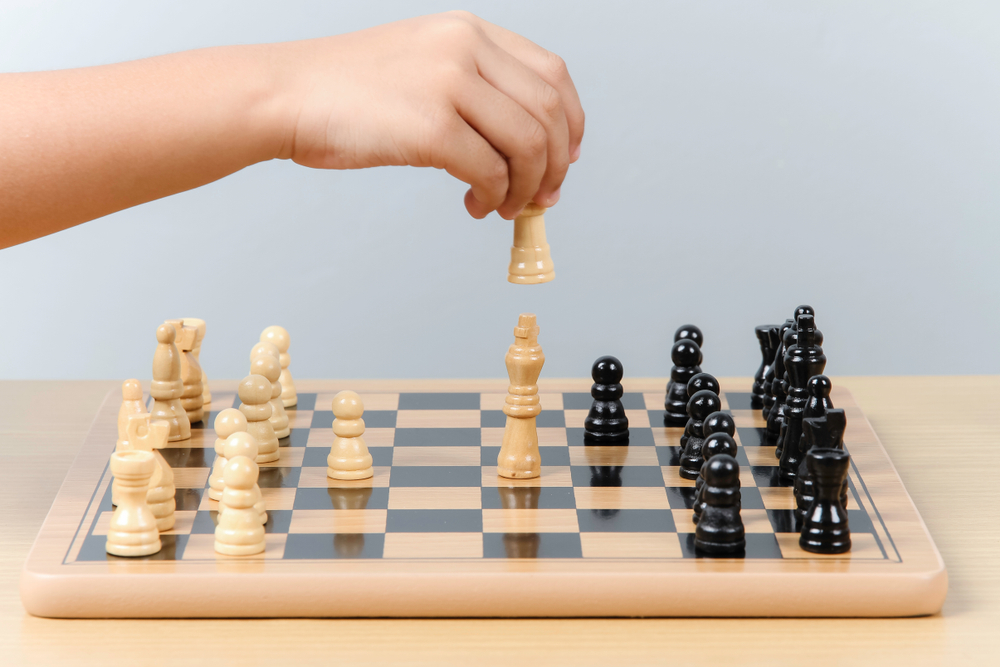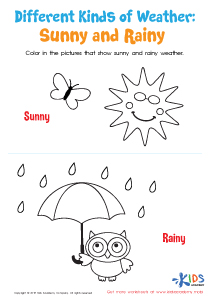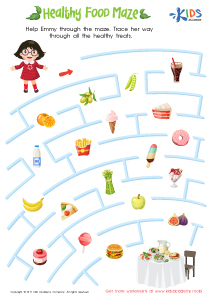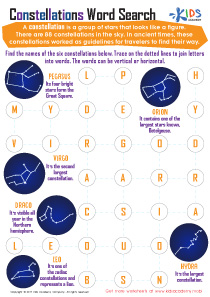Easy Problem Solving Worksheets for Ages 6-9
4 filtered results
-
From - To
Discover our engaging Easy Problem Solving Worksheets designed specifically for children ages 6-9. These worksheets are crafted to boost critical thinking and reasoning skills through fun, interactive activities. Ideal for budding scientists, our worksheets cover a variety of topics such as identifying patterns, decoding simple puzzles, and exploring basic science concepts. Parents and teachers will appreciate how these worksheets make learning an enjoyable experience while helping kids develop essential problem-solving abilities. Download now to give young learners the tools they need to succeed in both academics and everyday life!
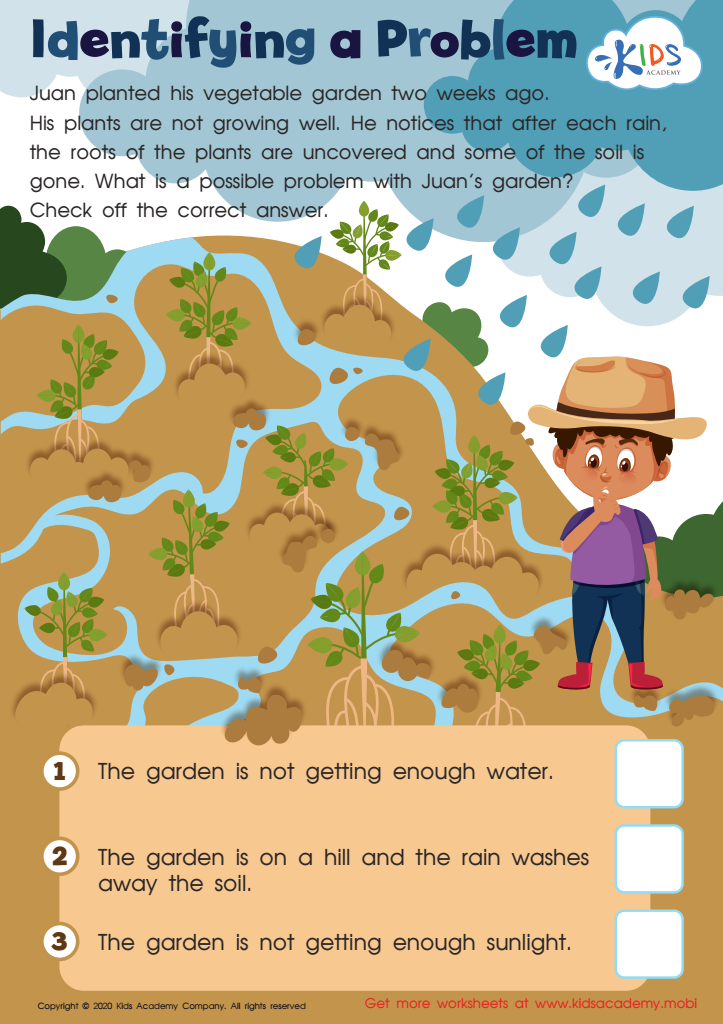

Identifying a Problem Worksheet
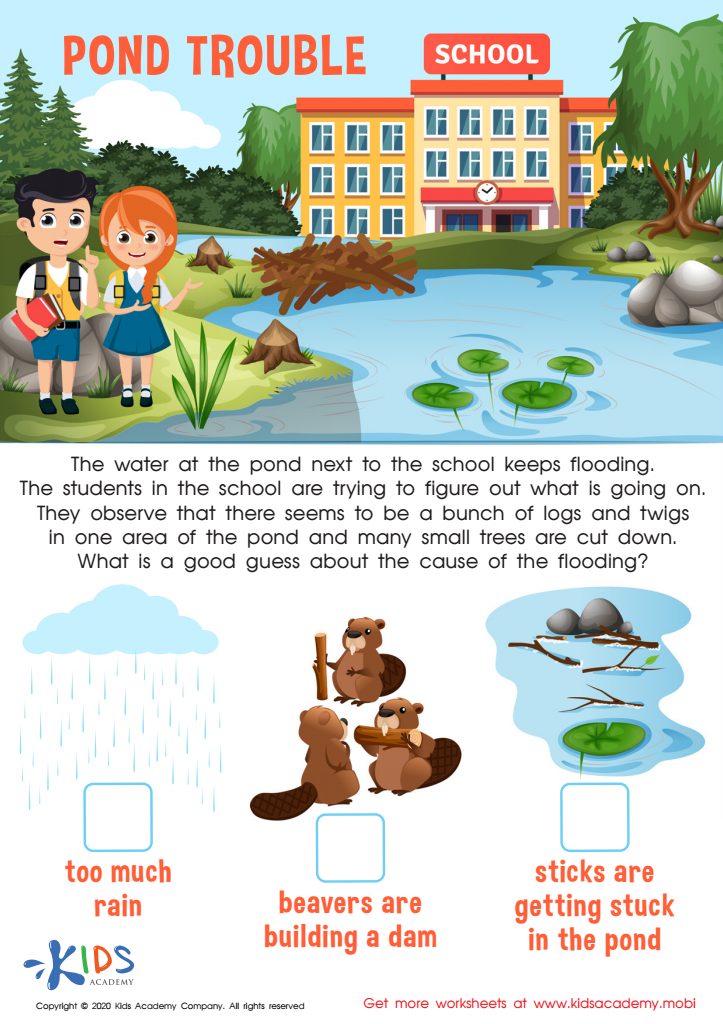

Pond Trouble Worksheet
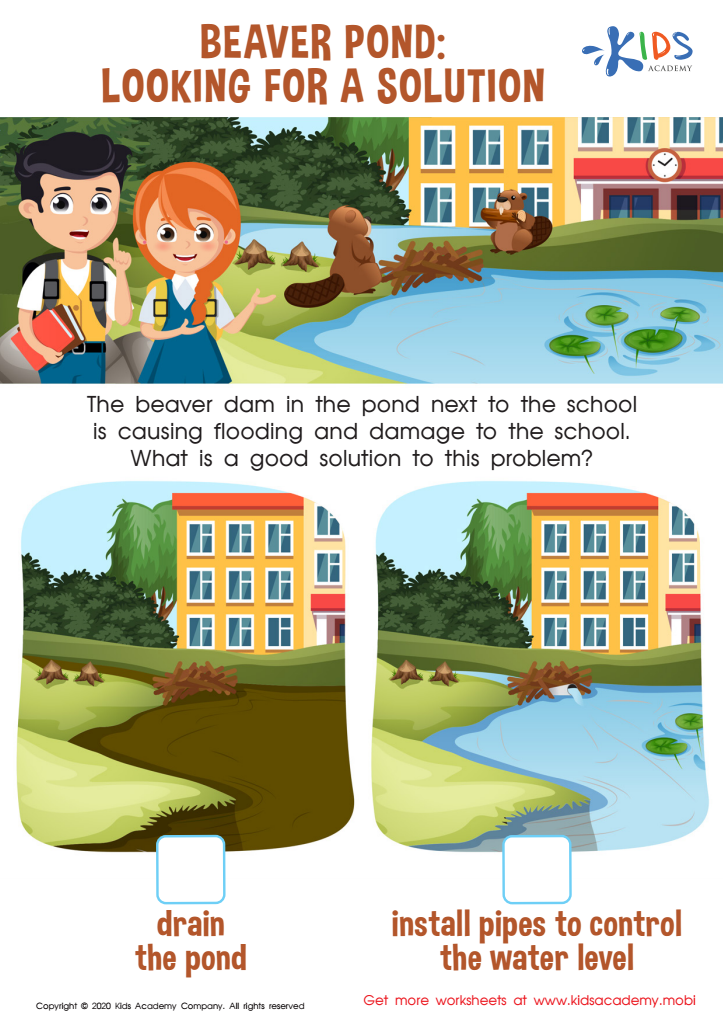

Beaver Pond: Looking for a Solution Worksheet
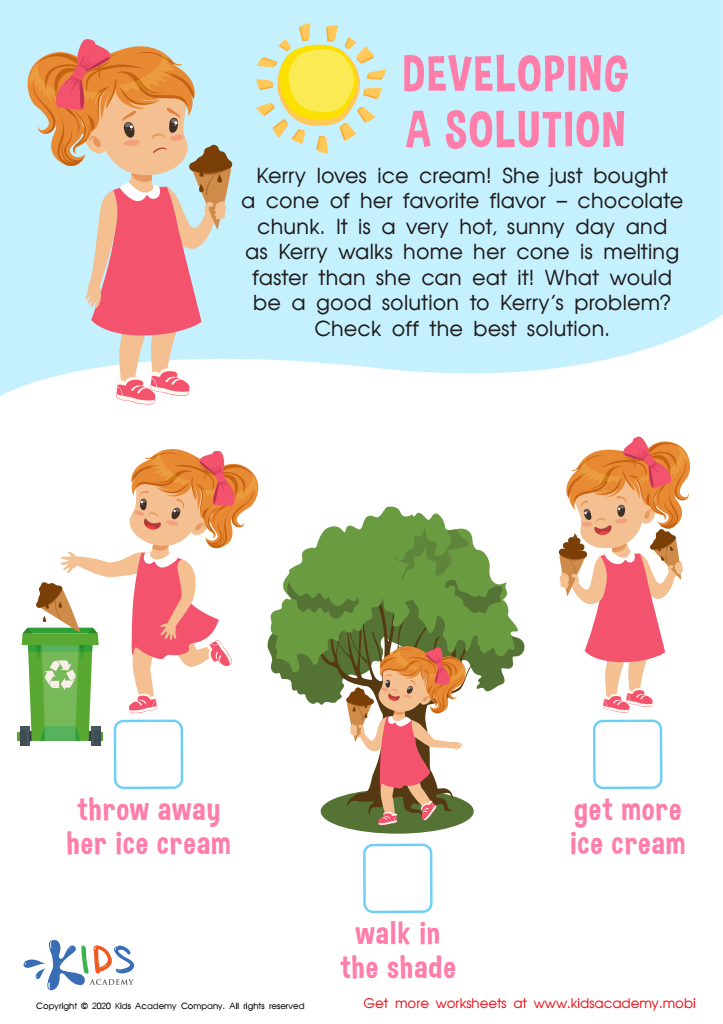

Developing Solution Worksheet
Easy problem-solving skills are crucial for children aged 6-9 because they lay the foundation for critical thinking and decision-making in later life. During these formative years, children are naturally curious and absorb information like sponges. They are learning how to tackle simple problems, which builds their confidence and ability to handle more complex challenges in the future.
For parents and teachers, fostering these skills can benefit a child's academic performance and social interactions. Problem-solving encourages logical thinking and creativity. Children learn to analyze situations, consider possible solutions, and implement them effectively. This analytical skill is not only vital for subjects like math and science but also for day-to-day challenges and peer interactions.
Additionally, problem-solving aids in developing perseverance and resilience. When children tackle a problem successfully, it strengthens their sense of achievement and boosts their self-esteem. Conversely, facing obstacles and finding solutions teaches them to overcome frustration and failure, which are invaluable life skills.
Encouraging easy problem-solving enables children to become more independent and competent individuals. As they progress through their education, these foundational skills will serve as a vital toolset, helping them to adapt and thrive in various circumstances both academically and personally. Knowing this, parents and teachers should prioritize problem-solving exercises and activities in early education.
 Assign to My Students
Assign to My Students





